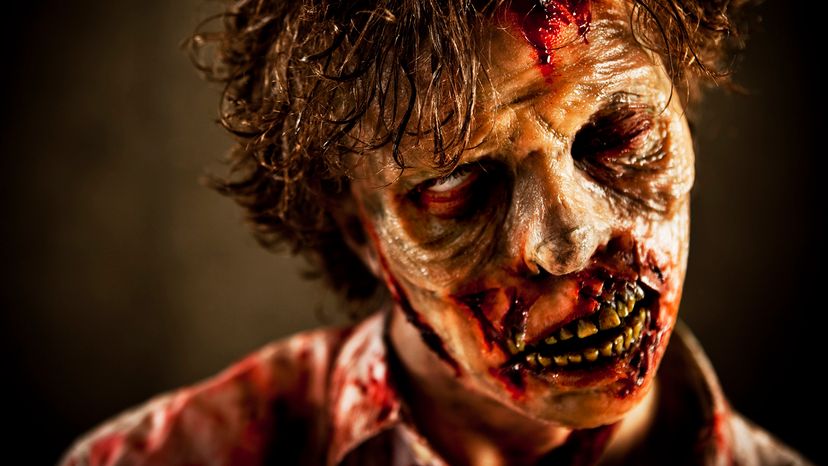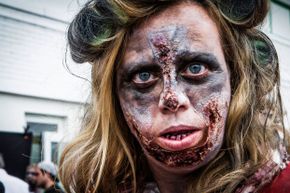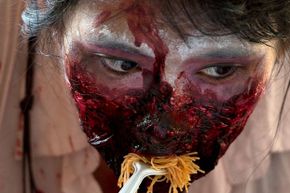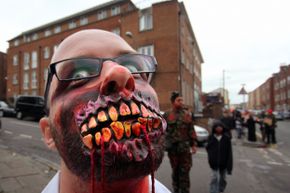The enamel on your teeth is the hardest substance in your body. This tough shell protects your chompers from the rigors of chewing foods, and with proper dental care will last you for a lifetime.
The key phrase there, of course, is that one about proper care. Guzzling sugary soda and neglecting to floss sets you up for decades of misery, including cavities, receding gums and a mouthful of other awfulness.
Zombies typically don't brush their teeth twice per day, even if they have any teeth at all. As their gums rot and the enamel cracks and fades, the bony protrusions of their teeth will become pitted and stained and then fall right out of their skulls, making biting you a hopelessly futile endeavor.
Still, a zombie's teeth are probably about the last part of its body to go. Even if those teeth shatter and break, they'd still make for formidable weapons if you were careless enough to stumble into a zombie's death grip.
But of course, that probably won't happen. For the time being, no virus or radiation leak or fungal infection has caused the world to be overrun by and undead horde.
On the bright side, you'll probably never have to run for your life as hundreds of dead people stumble and mumble and groan all around you and your family, clawing at your face and trying to eat your brains. Sadly, it also means you'll never have the chance to put your sophisticated zombie survival plan into action.
Either way, zombies are a physical impossibility. Nothing short of some pretty amazing magic would make them a real threat to humanity.










